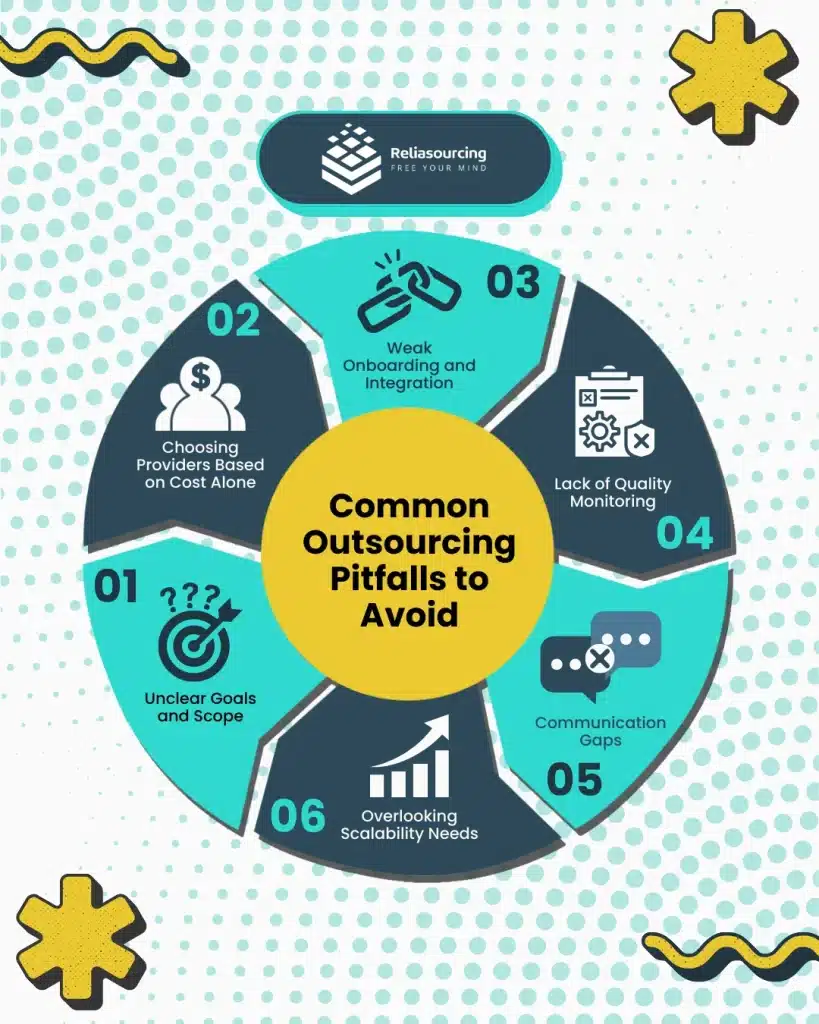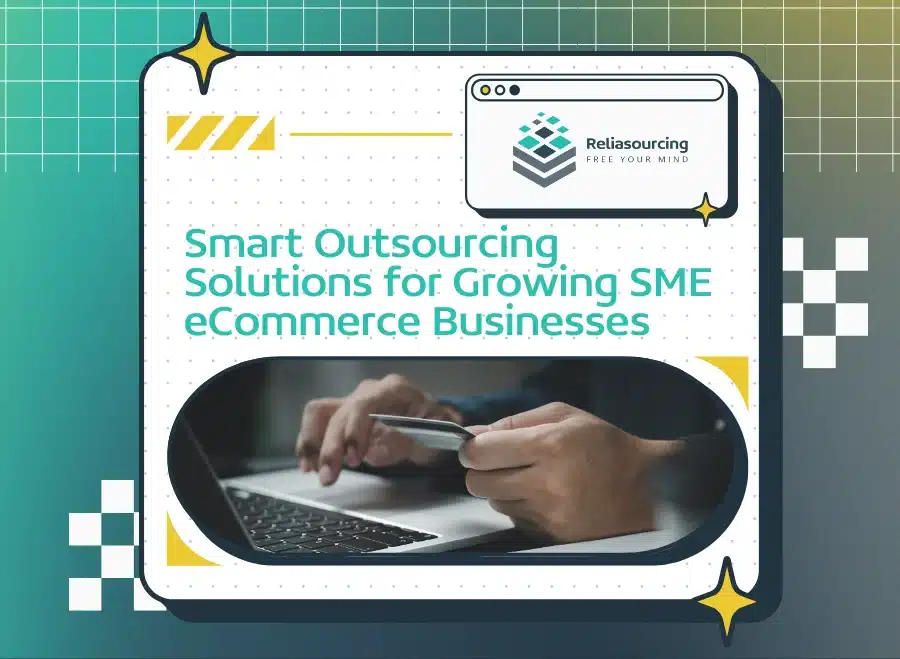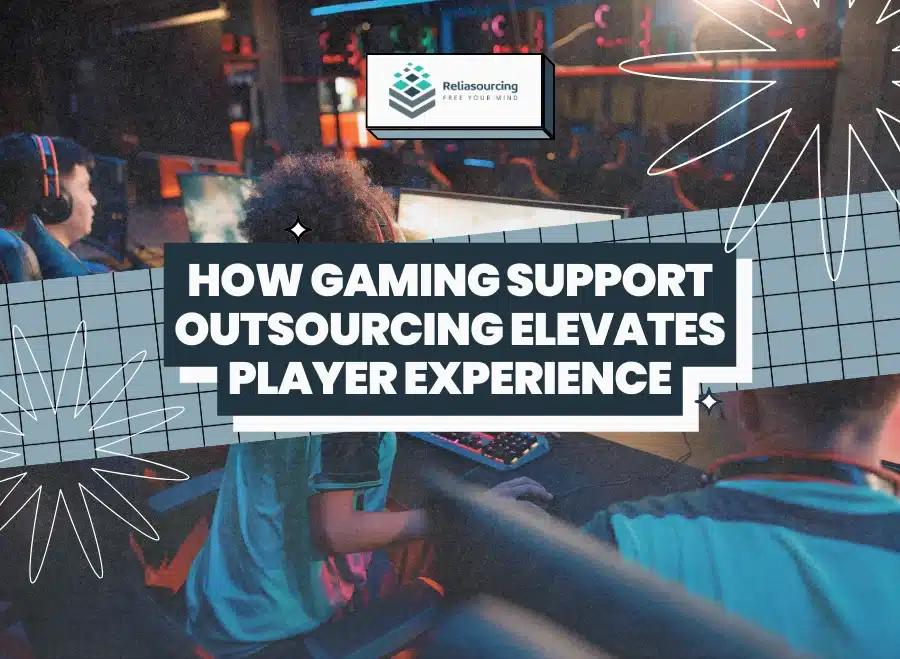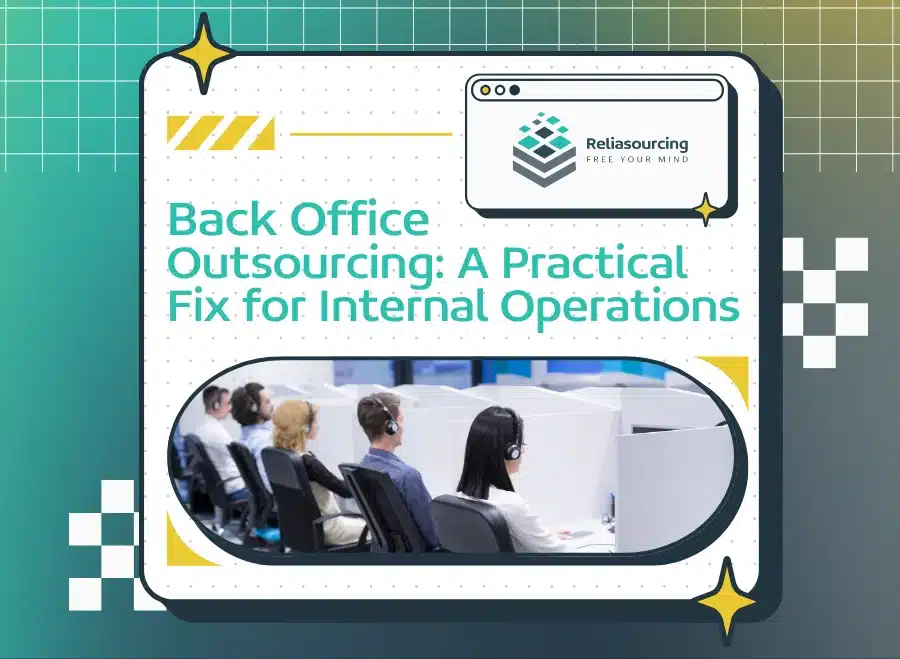Running an eCommerce business is a constant balancing act as customer expectations rise, operations expand, and digital marketing grows more competitive. Small and medium-sized enterprises (SMEs) often find themselves stretched thin since scaling effectively requires more than hard work and constant hustle. Expansion demands strategic resource allocation.
As a result, outsourcing has become a proven strategy for SMEs to stay competitive with industry leaders while remaining agile. The approach allows eCommerce businesses to focus on what they do best: product innovation, brand building, and customer engagement, while outsourcing functions like customer support, back-office operations, and fulfillment to external partners. For SMEs that want to grow without overwhelming internal teams, outsourcing offers a path toward efficiency, scalability, and long-term resilience.
However, not all outsourcing strategies deliver equal results. The difference lies in taking a smart outsourcing approach, one that aligns with your business goals, adapts to market shifts, and prioritizes customer experience. In this article, we’ll explore how SMEs can drive growth through outsourcing, the pitfalls to avoid, answers to the most common questions, and how Reliasourcing empowers ecommerce businesses to scale smarter, faster, and more sustainably.
Driving Growth Through Smart Outsourcing
Gone are the days when eCommerce SMEs take the shopping cart’s virtual wheels with just product quality or pricing. The shopping sprees now demand speed, convenience, and experience. And to thrive, outsourcing must be approached as a viable strategy for growth.
eCommerce-Specific Areas to Outsource

- Customer Support
Outsourcing customer support ensures round-the-clock coverage, multilingual availability, and consistent quality, making partnering with a specialist in customer service outsourcing a big help for SMEs who want to reduce wait times, boost CSAT scores, and retain loyal customers. - Fulfillment and Logistics
Managing order fulfillment in-house often stretches SMEs beyond capacity during peak seasons, so outsourcing warehousing and delivery coordination streamlines operations and reduces costly delays. - Digital Marketing and Sales Support
Outsourcing digital marketing functions, such as paid ads, SEO, and social media management, provides SMEs with expertise they can’t always afford in-house. Likewise, outsourcing sales support and lead generation helps SMEs capture growth opportunities without overburdening internal teams. - Back-Office Support
From business process outsourcing to data entry, payment reconciliation, and reporting, delegating back-office tasks keeps SMEs focused on high-value decisions.
Building a Growth-Focused Outsourcing Strategy
To maximize outsourcing’s potential, SMEs should:
- Define clear objectives. Instead of outsourcing reactively, identify measurable goals following benchmarks in the eCommerce industry, such as reducing response times to under 30 seconds or increasing order accuracy to around 96-98%.
- Establish KPIs and SLAs. Ensure accountability through performance metrics like CSAT, order processing speed, or first-contact resolution rates.
- Select the right partner: Not all outsourcing providers understand eCommerce’s unique challenges. Look for providers with retail and online sales expertise who can scale with your growth. The answer for SMEs to why companies outsource work is often a mix of scalability, expertise, and efficiency, which are factors critical to ecommerce competitiveness.
- Integrate brand culture. Outsourced teams should embody your brand’s tone, values, and customer-first mindset.
Data-Driven Continuous Optimization
The most successful SMEs treat outsourcing as a continuing process, evaluating performance regularly, refining workflows, and applying data-driven decisions to improve outcomes, thereby ensuring outsourcing doesn’t stop at just being an operational medium but drives revenue growth.
The Challenges of SMEs When Outsourcing
While outsourcing promises scalability and cost efficiency, SMEs often encounter specific challenges that large corporations don’t face.
- Cost Sensitivity. Many SMEs hesitate to outsource because they believe it requires heavy upfront investment since traditional providers often target enterprise-level clients, leaving SMEs underserved.
- Minimum Headcount Requirements. A major barrier is that large outsourcing companies frequently enforce high headcount minimums, putting SMEs in a bind when they only need a small, agile team.
- Locked-in Terms. Rigid contracts can prevent SMEs from adapting their outsourced operations to changing business needs, especially during seasonal fluctuations or sudden market downturns.
Reliasourcing’s Approach to SME-Friendly Outsourcing
Reliasourcing addresses these pain points directly:
- Cost-efficient solutions designed to maximize ROI without excessive overhead.
- No minimum headcount requirements, allowing SMEs to start small and scale gradually.
- Flexible contracts that adapt to seasonal hiring needs, ensuring SMEs remain agile without being tied to unnecessary commitments.
Through this, outsourcing becomes a growth opportunity for SMEs who once perceived the strategy as a financial risk.
Common Outsourcing Pitfalls to Avoid

Even with the advantages of outsourcing, many SMEs struggle to make it work effectively, and it usually comes down to predictable pitfalls that can be avoided with proper planning. Understanding these risks upfront allows businesses to design stronger outsourcing strategies.
1. Unclear Goals and Scope
One of the most common mistakes SMEs make is outsourcing without a clearly defined purpose. For example, a business may outsource customer support simply to “save time.” The outsourcing partner won’t know how to measure success without specific goals, such as reducing average response times from 12 hours to 2, or achieving a 90% CSAT score.
Another challenge is a lack of scope. Expectations quickly break down if you ask a partner to “handle fulfillment” but don’t specify responsibilities like packaging, shipping coordination, or returns management. Successful outsourcing starts with SMART goals (Specific, Measurable, Achievable, Relevant, and Time-bound) and detailed scopes of work.
2. Choosing Providers Based on Cost Alone
While outsourcing can lower costs, prioritizing the cheapest option is a trap. Providers that undercut on pricing often cut corners, using undertrained staff, neglecting quality assurance, or operating with outdated technology. The result: customers experiencing inconsistent service, and your brand reputation suffers.
Instead, SMEs should prioritize value over price. Look for partners who balance affordability with proven expertise, technology investment, and the ability to scale with the business. Remember: in eCommerce, customer trust is fragile. A single poor service interaction can cost you repeat sales.
3. Weak Onboarding and Integration
Outsourced teams need more than a script. They need to understand your products, values, and brand personality. Too many SMEs skip this crucial onboarding step and assume outsourced teams will “figure it out.” The outcome is robotic communication that feels disconnected from your brand identity.
Onboarding should be treated as a joint process, wherein SMEs provide training materials, host live Q&A sessions, and give outsourcing partners access to internal tools where appropriate. Integration also matters: connect outsourced teams to your CRM, ticketing systems, and knowledge bases. The smoother the integration, the faster the outsourced team delivers value.
4. Lack of Quality Monitoring
Outsourcing is not a “set it and forget it” strategy since, without ongoing monitoring, service levels can slip over time. A common pitfall is that SMEs assume the outsourcing partner will handle all quality assurance internally, but while many providers do have QA teams, SMEs need to establish shared accountability.
Regular reporting on KPIs like first-contact resolution, CSAT, or order accuracy keeps both sides aligned. Likewise, joint calibration sessions and customer feedback reviews ensure the outsourced team continuously improves, rather than plateauing after initial gains.
5. Communication Gaps
Time-zone differences and cultural barriers can lead to misunderstandings that erode trust. For instance, an eCommerce SME in Europe may outsource to a provider in Asia, only to find delays in decision-making because of mismatched working hours.
This challenge can be solved with structured communication practices, such as weekly alignment meetings, clear escalation protocols, and shared collaboration tools (like Slack or Asana), which reduce the risk of miscommunication. It’s also critical to have a single point of contact on both sides who takes ownership of updates and issue resolution.
6. Overlooking Scalability Needs
Some SMEs outsource just enough to fix immediate pain points but fail to consider long-term scalability. For example, outsourcing a three-person customer support team may solve today’s backlog, but it won’t be enough during holiday surges. If the partner can’t flex capacity, the business returns to where it started.
When choosing an outsourcing partner, ask about scalability options: Can they ramp up staff quickly for seasonal spikes? Can they expand services as your product lines grow? Avoiding this pitfall ensures that outsourcing evolves alongside your business rather than holding it back.
Frequently Asked Questions
How does outsourcing support eCommerce business growth?
Outsourcing supports eCommerce business growth through enabling SMEs to scale without proportionally increasing costs. Partnering with experts in functions like eCommerce customer service outsourcing allows SMEs to handle larger order volumes, improve customer satisfaction, and focus internal resources on innovation and expansion.
What functions are most cost-effective to outsource for SMEs?
The most cost-effective functions to outsource are typically customer service, fulfillment, back-office operations, and digital marketing. These areas directly impact customer experience and operational efficiency while freeing SMEs to prioritize revenue-driving activities.
Is outsourcing viable for early-stage online businesses?
Yes, outsourcing is viable even for early-stage businesses. However, outsourcing delivers even greater returns for SMEs already scaling with the agility and expertise it brings, at a fraction of the cost of building large in-house teams.
Which KPIs ensure outsourcing success?
Key KPIs that ensure outsourcing success include customer satisfaction (CSAT), Net Promoter Score (NPS), first-contact resolution rate, average response time, and order accuracy. Tracking these metrics ensures outsourcing delivers measurable improvements, not just lower expenses.
When is the right time for an SME to outsource?
The right time for an SME to outsource is when their internal team is stretched beyond capacity, customer experience begins to slip, or scaling requires expertise the team doesn’t have. Outsourcing becomes the bridge for scaling SMEs between maintaining service quality and pursuing aggressive growth targets.
How Reliasourcing Powers SME eCommerce Growth
Reliasourcing has built its outsourcing model around the unique needs of scaling eCommerce SMEs. Unlike traditional providers, we don’t impose restrictive headcount minimums or rigid contracts. Instead, we offer scalable outsourcing solutions that grow alongside your business.
Reliasourcing’s services extend beyond customer support to include:
- eCommerce-focused customer service that aligns with your brand voice.
- Back-office operations for seamless order tracking, data entry, and reconciliation.
- Technical support to keep online platforms running smoothly.
Combining these capabilities, SMEs gain a partner capable of managing both day-to-day operations and complex scaling challenges.
Flexible Contracts, Real Results
Where other providers lock SMEs into costly, inflexible agreements, Reliasourcing offers seasonal staffing solutions that adjust to demand cycles. If you plan to scale rapidly during holiday peaks or optimize during slower periods, we ensure SMEs like yours remain in control.
In practice, this means lower risk, faster results, and a clear focus on growth. For example, a fast-fashion client experienced improved customer satisfaction, reduced operational costs, and measurable revenue lifts when integrating Reliasourcing into their eCommerce strategies.
Your Partner for Sustainable Growth
With an emphasis on improving customer service and a commitment to scalability, Reliasourcing empowers SMEs to compete confidently in crowded eCommerce markets.
For business owners ready to take the next step, the first conversation can make all the difference. Let’s talk about scaling your eCommerce business. Contact us today!
Conclusion: Outsourcing as a Growth Engine
For SME eCommerce businesses, growth brings both opportunity and complexity. The selling point of outsourcing as merely a strategy to reduce costs has ended. Now, outsourcing is about building a scalable framework supporting customer satisfaction, operational excellence, and sustainable expansion.
The smartest SMEs leverage outsourcing not as a stopgap but as a growth engine. SMEs can turn outsourcing into a powerful advantage by avoiding common pitfalls, setting clear KPIs, and selecting the right partner.
Reliasourcing makes this possible. With its cost-efficient, flexible, and SME-friendly outsourcing solutions, we ensure your business thrives on demand, no longer just keeping up.
Ready to scale your eCommerce business with smart outsourcing? Talk to us today and see how Reliasourcing can help you turn growth challenges into growth opportunities









